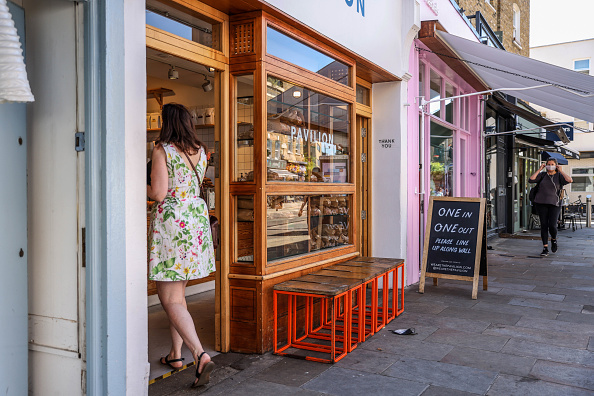Hunt looks at business rates ‘cliff edge’ ahead of fiscal statement

Jeremy Hunt will make a tough decision on planned business rates hikes next week as business groups warn of “an existential threat” coming in April.
British firms are facing a near £3bn annual hike in business rates next year if inflation stays above 10 per cent, according to Altus Group.
Commercial properties will have their rateable value updated in line with inflation next April – an increase that many SMEs are branding as unfairly onerous.
The chancellor is actively looking at whether to change the formula to mute the increase, with a Treasury source saying “it’s a big issue and it’s under review”.
Hunt is looking to raise around £55-60bn in his autumn fiscal statement next week, with up to half coming from tax hikes.
Hunt and Rishi Sunak have said that taxes will rise for everyone, but that those with the “broadest shoulders” will carry the heaviest load.
There has been speculation they will look to increase capital gains and dividends taxes, while also freezing Income Tax thresholds in a stealth tax grab.
The Confederation for British Industry (CBI) today said many British retailers needed to avoid the “looming business rates cliff edge” to stay viable.
The CBI said the planned inflation-linked hike will cost British retailers a combined £800m-a-year.
“Without intervention, the eye-watering rises scheduled for April will present an existential threat for many businesses which communities depend on,” CBI policy director Matthew Fell said.
The Federation of Small Businesses said it would be a “disaster for many small firms” if the government does not intervene to keep business rates down.
“With the retail and hospitality discount due to end around when the initial six-month period of support with energy bills also runs out, many small firms are understandably highly concerned about what next year will hold for them,” FSB policy chair Tina McKenzie said.
Rishi Sunak reviewed business rates while he was chancellor in 2021, with the Treasury vowing to make the system “fairer and timelier”.
This resulted in more frequent evaluations of the rateable values of properties and a business rates discount in 2022-23 for small retail, hospitality and leisure businesses.
Business groups have called for online companies without bricks-and-mortar shop fronts to face an online sales tax in order to provide tax discounts to High Street shops.
A Treasury spokesperson said: “Our business rates review led to almost £7bn of support to reduce the burden of rates over the next five years and brought about reforms which will make the system fairer.
“This included freezing the multiplier in 2022-23 to put the brakes on bill increases, and almost £1.7 billion in support to the retail, hospitality and leisure sectors.”